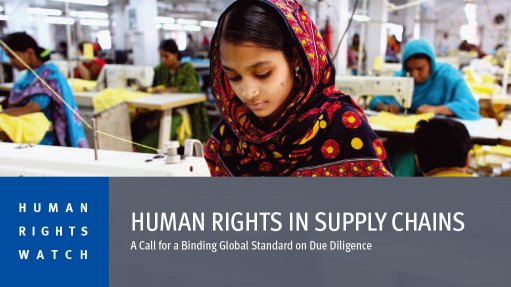
In our globalised economy, businesses across all sectors increasingly source all manners of goods and services from complex chains of suppliers that often span multiple countries with radically different legal, regulatory, and human rights practices. According to the International Labour Organization (ILO), more than 450 million people work in supply chain-related jobs. While complex global supply chains can offer important opportunities for economic and social development, they often present serious human rights risks that many companies have failed to mitigate and respond to effectively.
Individual companies’ global supply chains often involve large numbers of suppliers or subcontractors, including some who are part of the informal sector. The people most affected by human rights abuses in a company’s supply chain often belong to groups who have no realistic opportunities to call attention to these problems themselves, or secure a remedy, such as women workers, migrant workers, child labourers, or residents of rural or poor urban areas.
Report by the Human Rights Watch